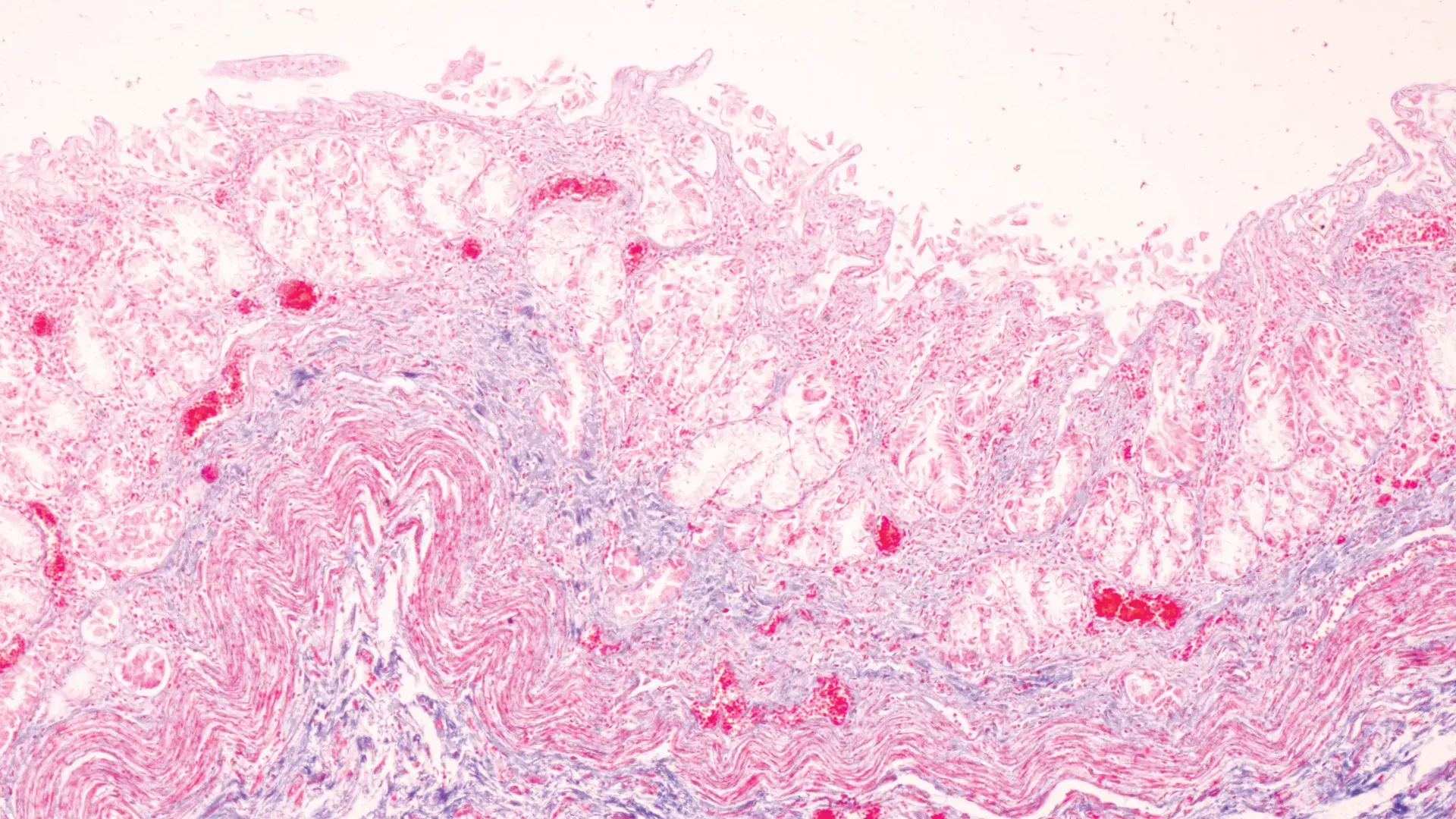4 Questions on NAD/NADH Testing Answered
Unlocking the Secrets of Cellular Energy
5 min read
![]() Dr. Andrea Gruszecki, ND
:
March 4, 2020 at 10:31 AM
Dr. Andrea Gruszecki, ND
:
March 4, 2020 at 10:31 AM

There is presently a great deal of concern regarding the spread of Coronavirus (COVID-19) into the general population. While we are all concerned about infection, elderly individuals, those with lung disease or respiratory disorders, those with atopic (allergic) disorders, and those with other pre-existing medical conditions are at the greatest risk from viral infections, such as influenza and Coronavirus. In addition to the preventative and protective measures recommended by the Centers for Disease Control and Prevention, there are pro-active measures that may also be taken to boost immunity and cellular heath to prevent the likelihood of serious illness in the event of a virus exposure.
Vitamin D deficiency increases the risk of infection by viruses or other pathogens. Low vitamin D levels can cause multiple disruptions in the body that can increase the risk of infection. Vitamin D deficiency is known to:
Evaluating and managing vitamin D status and these disruptions may improve overall health and decrease the risk of infection from influenza or other viruses.
Active 1α,25-dihydroxyvitamin D (1α,25-D) binds to the vitamin D receptor (VDR), and then the vitamin D/VDR complex binds to target genes in our DNA to alter cell functions. Most immune cells carry VDRs, including T-cells, neutrophils, macrophages and dendritic (antigen-presenting) cells. While vitamin D/VDR complexes most often promote tolerance, the signaling can change once a pathogen is present, and 1α,25-D is a direct inducer of innate antimicrobial immunity during infections.
Vitamin D signaling in immune cells such as macrophages and dendritic cells is essential for immune responses to infection and pathogen recognition. Vitamin D is so important for proper immune function that activated macrophages and dendritic cells are both capable of converting the precursor molecule 25-hydroxyvitamin D (D2 or D3) into active 1,25-D to support local immune responses. Instead of being regulated by calcium levels as in the classical liver-kidney vitamin D synthesis pathway, the conversion to active vitamin D in immune cells is promoted by signaling via toll-like receptors (TLR-2, TLR-4) and other immune signaling pathways.
In addition to directly regulating the immune system, vitamin D is important in supporting our gastrointestinal and respiratory microbiomes, the collections of commensal microbes that live on our mucosal surfaces and interact with our immune systems to promote either immune tolerance or inflammatory responses. Human studies demonstrate that vitamin D deficiency significantly alters both the gut and respiratory microbiomes of subjects with cystic fibrosis. In particular, the vitamin D deficient population had a higher percentage of Gram-negative pathogenic bacteria in their gut microbiomes and lower microbial diversity. In the lung, vitamin D deficiency was also associated with an increased percentage of anaerobic bacteria and pathogenic species, which were associated with an increased risk of infection and inflammatory lung responses in the subjects.
Human studies indicate that those with atopic dermatitis or asthma have an increased risk of infection, particularly when exposed to novel pathogens (such as the 2009 H1N1 influenza). Atopic allergic disorders are primarily driven by IgE-mediated responses, which can be evaluated with serum IgE and IgG4 testing. IgG4 often acts as a “blocking antibody” for IgE, so the evaluation of both immunoglobulins provides to most complete assessment and best guidance for dietary elimination.
In those with atopic disease there is a divergence between IgE and IgG responses in early childhood; the IgE responses are directed primarily towards airborne allergens, while their inflammatory IgG responses (IgG1, IgG2, IgG3) are directed towards non-IgE-mediated food protein exposures. Evaluating IgE inhalant and food allergies, and IgG food sensitivities, allow a clinician to eliminate reactive foods, decrease systemic inflammation, and promote tolerance. A tolerant immune system is best able to mount an appropriate, limited, immune response to a viral or bacterial pathogen.
Mitochondria regulate immune responses that determine the activation, differentiation and survival of immune cells. Mitochondrial immune regulation occurs when mitochondrial DNA and reactive oxygen species (ROS) influence nuclear cellular DNA and protein transcription in immune cells. Mitochondria-driven signaling includes anti-viral signaling and anti-microbial inflammatory responses.
VDRs are found in mitochondria, and cell culture studies demonstrate that the loss of VDR signaling in mitochondria (as occurs during vitamin D deficiency) increases mitochondrial respiration, oxidative stress, and cell death. This oxidative stress may be exacerbated by other micronutrient deficiencies, inherited low-activity enzyme variations, or toxic environmental exposures, and becomes significant when disease or infection occurs. Oxidative stress is often induced by viral pathogens to increase viral replication within cells. Mitochondrial function, and the function of other essential biochemical pathways, can be evaluated with a dried urine organic acids profile. The organic acids profile can provide guidance for nutritional supplementation and lifestyle changes that support mitochondrial—and thereby, immune system—function.
Fortunately, bolus dosing of supplemental vitamin D3 can raise serum levels in deficient subjects within 1-2 weeks, and the results are most significant in those with the greatest levels of deficiency. The available evidence indicates that D3 is converted into active 1α,25-D most efficiently and the Endocrine Society currently recommends 50,000 IU of vitamin D2 or D3 weekly for 8 weeks. It is important to monitor vitamin D levels once the bolus dosing is completed, as levels may then begin to decrease and additional supplementation strategies may be required.
It is not too late to start testing for Vitamin D, allergies and sensitivities, and mitochondrial functions that may improve general health and immunity to viral and bacterial infections. For additional information regarding Bloodspot Vitamin D, IgE or IgG testing, or Organic Acids testing contact us.
Read More: 3 Ways to Increase Your Vitamin D Levels
Angajala A, Lim S, Phillips JB, et al. Diverse Roles of Mitochondria in Immune Responses: Novel Insights into Immuno-Metabolism. Front Immunol. 2018;9:1605.
Centers for Disease Control and Prevention (2020) Preventing COVID-19 Spread in Communities. https://www.cdc.gov/coronavirus/2019-ncov/community/index.html Accessed 03 March 2020.
Eckl-Dorna J, Villazala-Merino S, Linhart B, Karaulov AV, Zhernov Y, Khaitov M. Allergen-Specific Antibodies Regulate Secondary Allergen-Specific Immune Responses. Front. Immunol. 2019;9:3131.
Greiller CL, Martineau AR. Modulation of the immune response to respiratory viruses by vitamin D. Nutrients. 2015;7(6):4240–4270.
Holick MF, Binkley NC, Bischoff-Ferrari HA, et al. Evaluation, treatment, and prevention of vitamin D deficiency: an Endocrine Society clinical practice guideline [published correction appears in J Clin Endocrinol Metab. 2011 Dec;96(12):3908]. J Clin Endocrinol Metab. 2011;96(7):1911–1930.
Kanhere M, He J, Chassaing B, et al. Bolus Weekly Vitamin D3 Supplementation Impacts Gut and Airway Microbiota in Adults with Cystic Fibrosis: A Double-Blind, Randomized, Placebo-Controlled Clinical Trial. J Clin Endocrinol Metab. 2018;103(2):564–574.
Los Angeles Times (2020) Coronavirus stalks the aged and infirm, who face the most serious, lethal risk. https://www.latimes.com/california/story/2020-03-03/coronavirus-spreads-the-elderly-and-unhealthy-are-at-highest-risk Accessed 03 March 2020.
Mirzakhani H, Al-Garawi A, Weiss ST, Litonjua AA. Vitamin D and the development of allergic disease: how important is it?. Clin Exp Allergy. 2015;45(1):114–125.
Reshi ML, Su YC, Hong JR. RNA Viruses: ROS-Mediated Cell Death. Int J Cell Biol. 2014;2014:467452.
Ricca C, Aillon A, Bergandi L, Alotto D, Castagnoli C, Silvagno F. Vitamin D Receptor Is Necessary for Mitochondrial Function and Cell Health. Int J Mol Sci. 2018;19(6):1672.
Shukla SD, Budden KF, Neal R, Hansbro PM. Microbiome effects on immunity, health and disease in the lung. Clin Transl Immunology. 2017;6(3):e133.
Tripkovic L, Lambert H, Hart K, et al. Comparison of vitamin D2 and vitamin D3 supplementation in raising serum 25-hydroxyvitamin D status: a systematic review and meta-analysis. Am J Clin Nutr. 2012;95(6):1357–1364.
White JH. Regulation of intracrine production of 1,25-dihydroxyvitamin D and its role in innate immune defense against infection. Arch Biochem Biophys. 2012;523(1):58–63.
White JH. Vitamin D signaling, infectious diseases, and regulation of innate immunity. Infect Immun. 2008;76(9):3837–3843.
Juhn YJ. Risks for infection in patients with asthma (or other atopic conditions): is asthma more than a chronic airway disease?. J Allergy Clin Immunol. 2014;134(2):247–259.

Unlocking the Secrets of Cellular Energy

Short chain fatty acids (SCFAs) are organic acids produced by bacterial fermentation of dietary fibre and resistant starch. Enterocytes and...

Zonulin has emerged as a popular marker to assess the integrity of the intestinal mucosal barrier. Discovered by Dr Alessio Fasano, Zonulin...